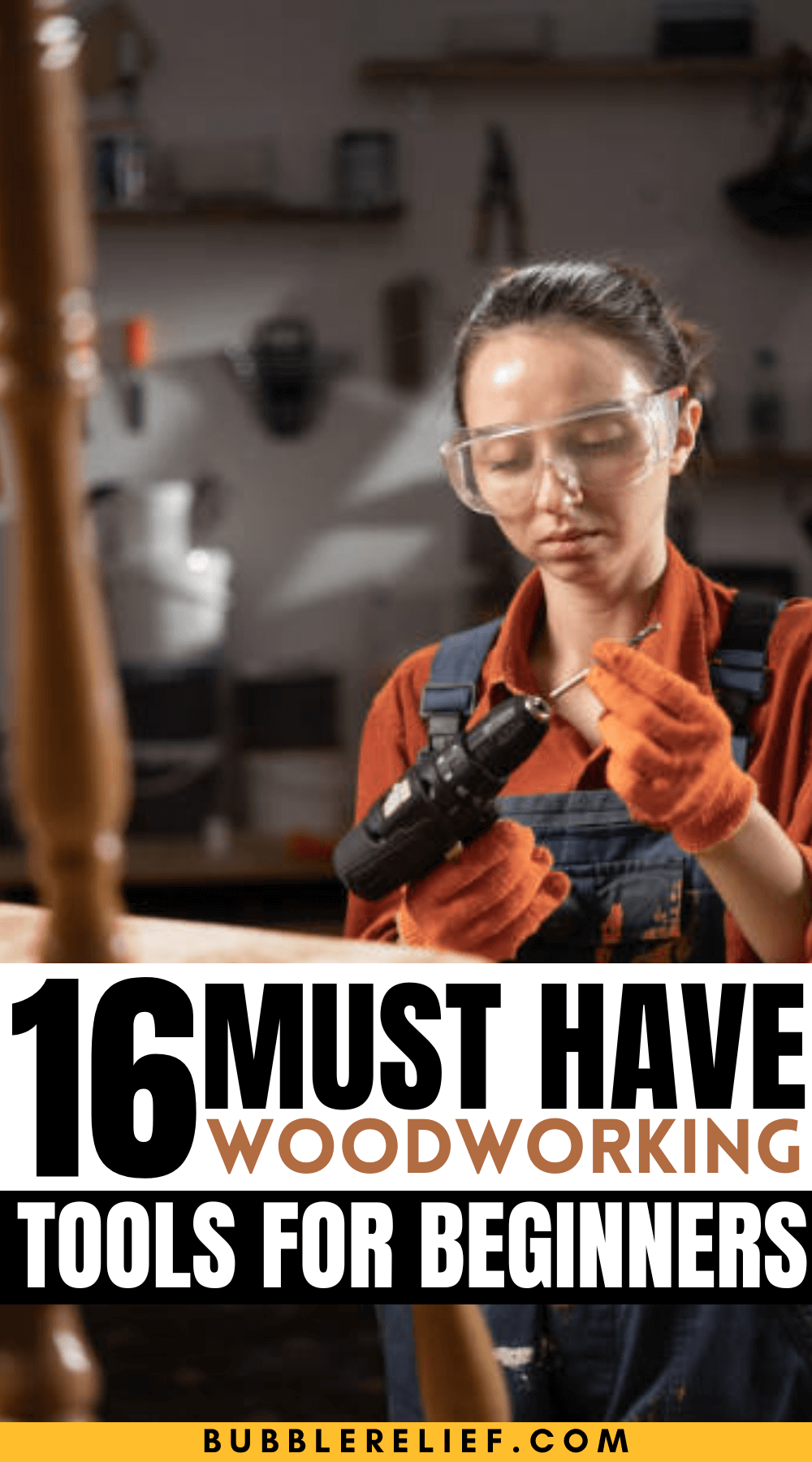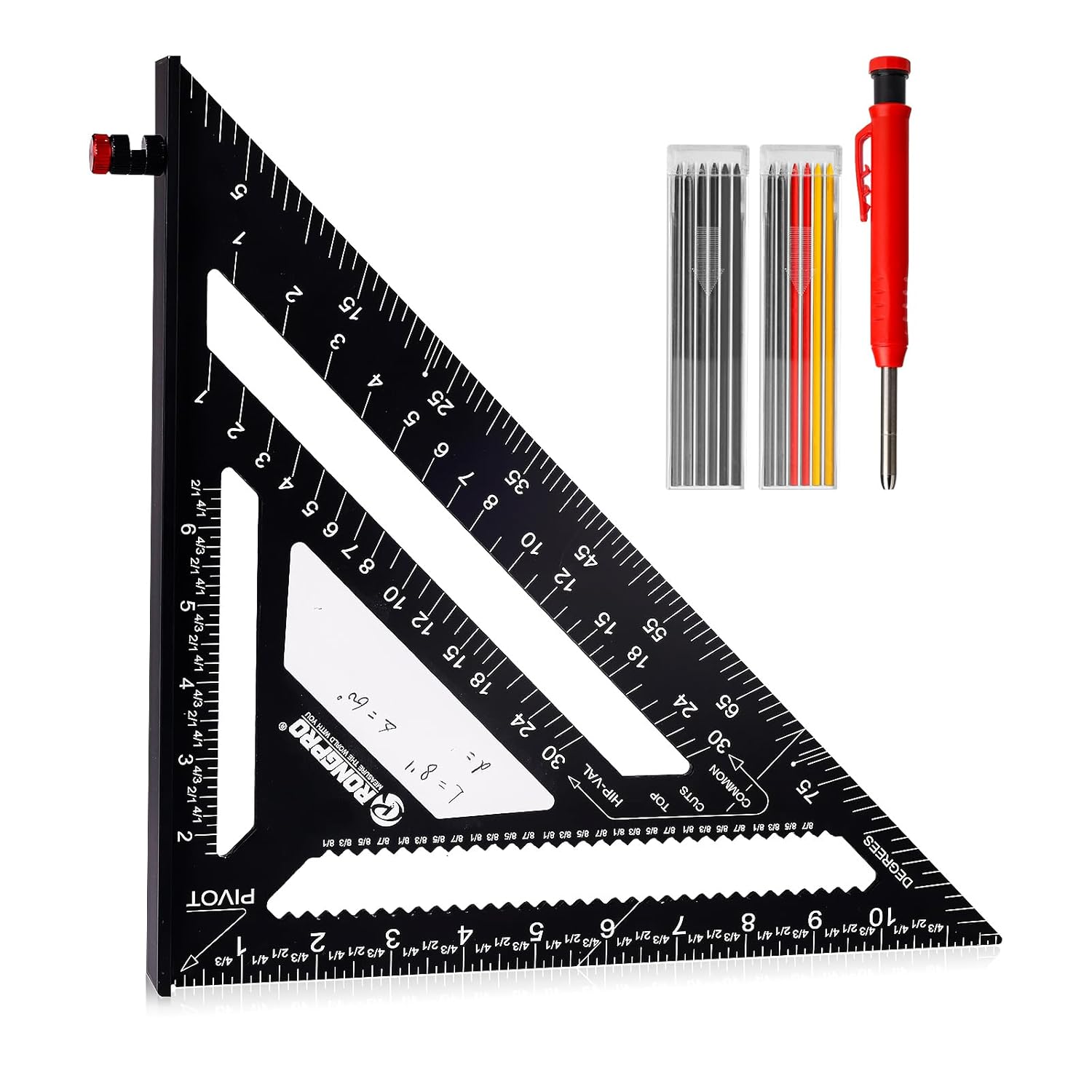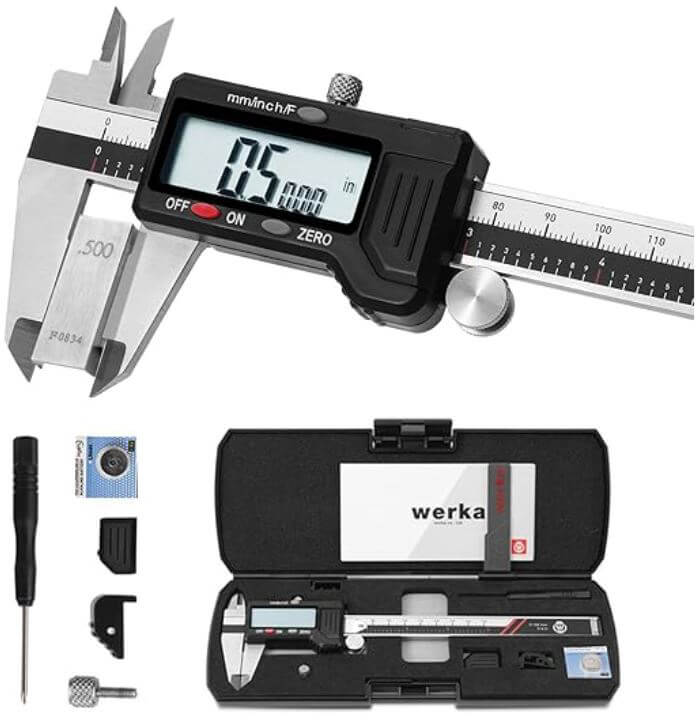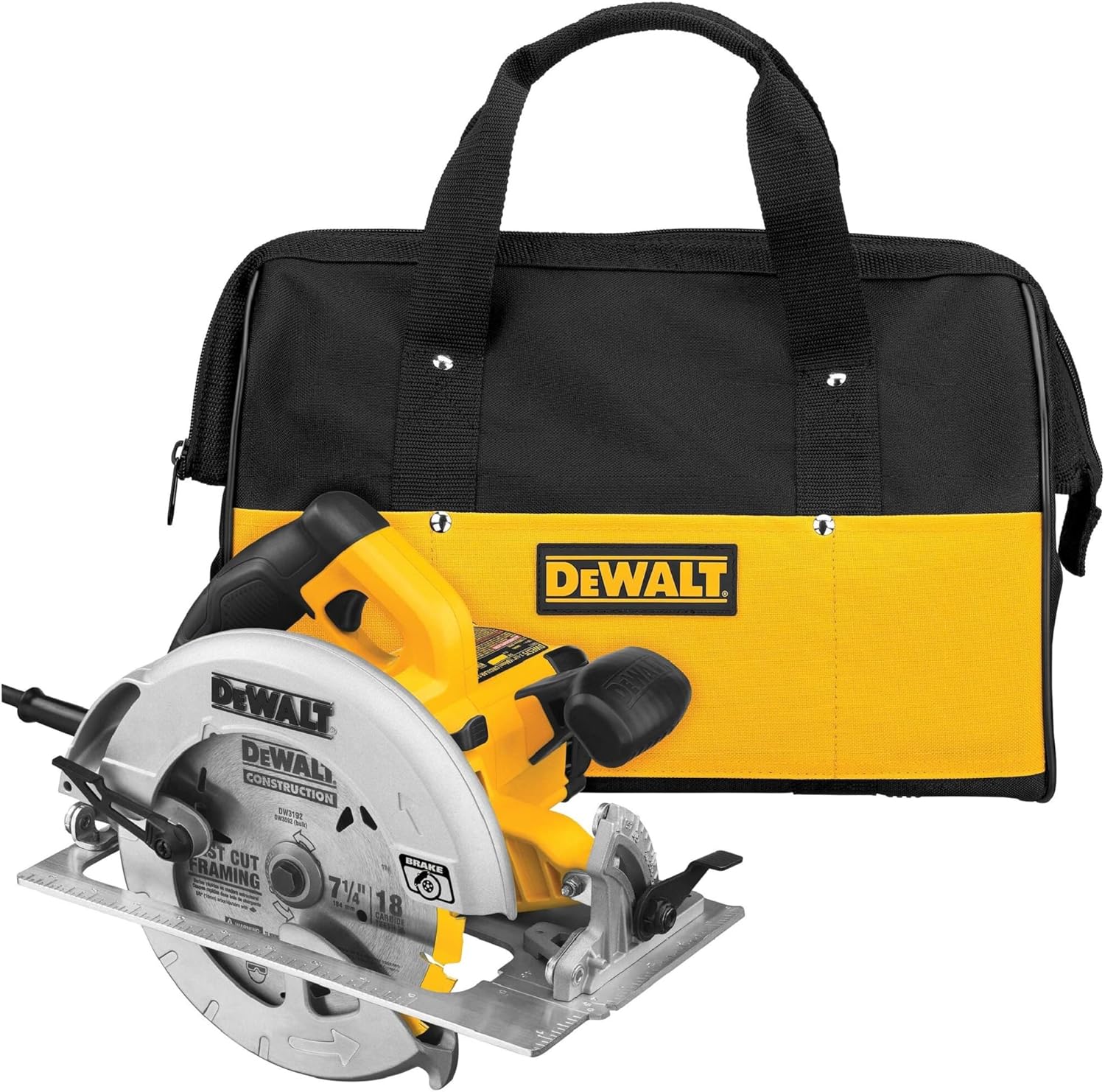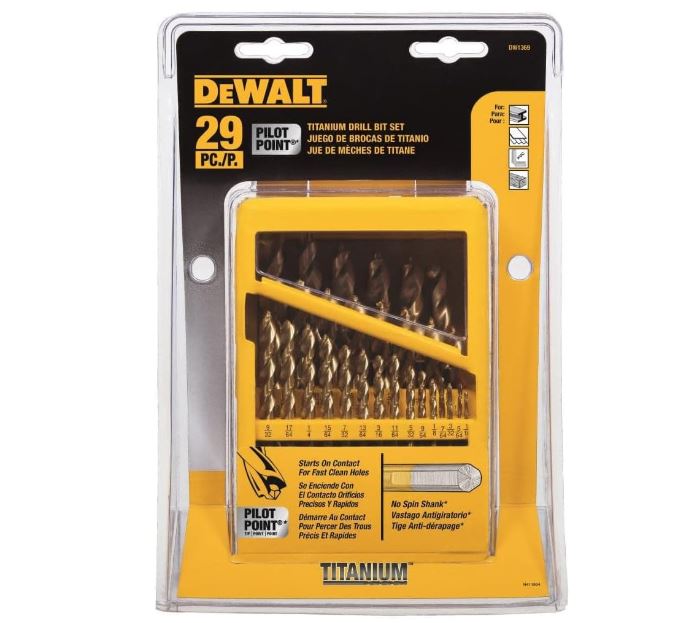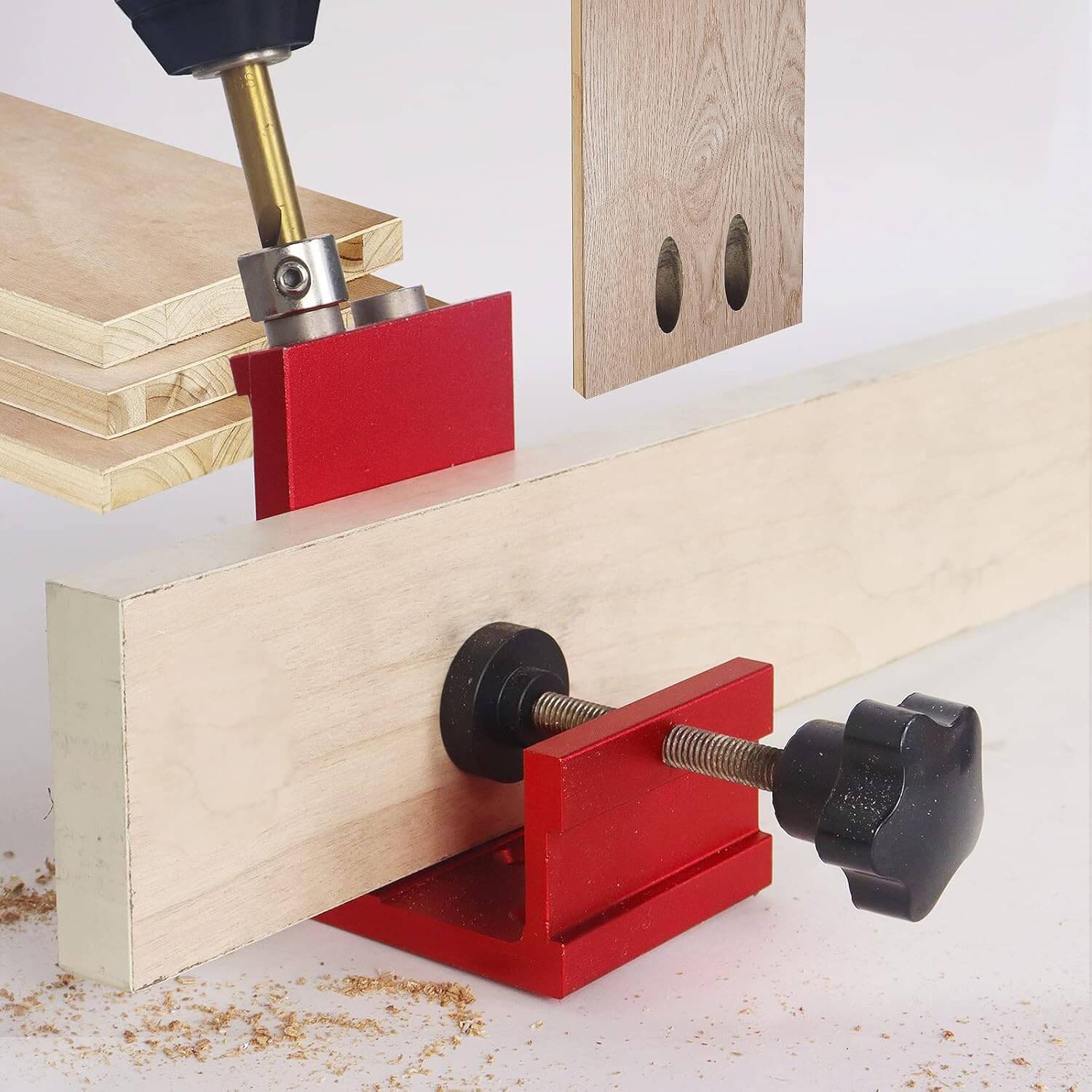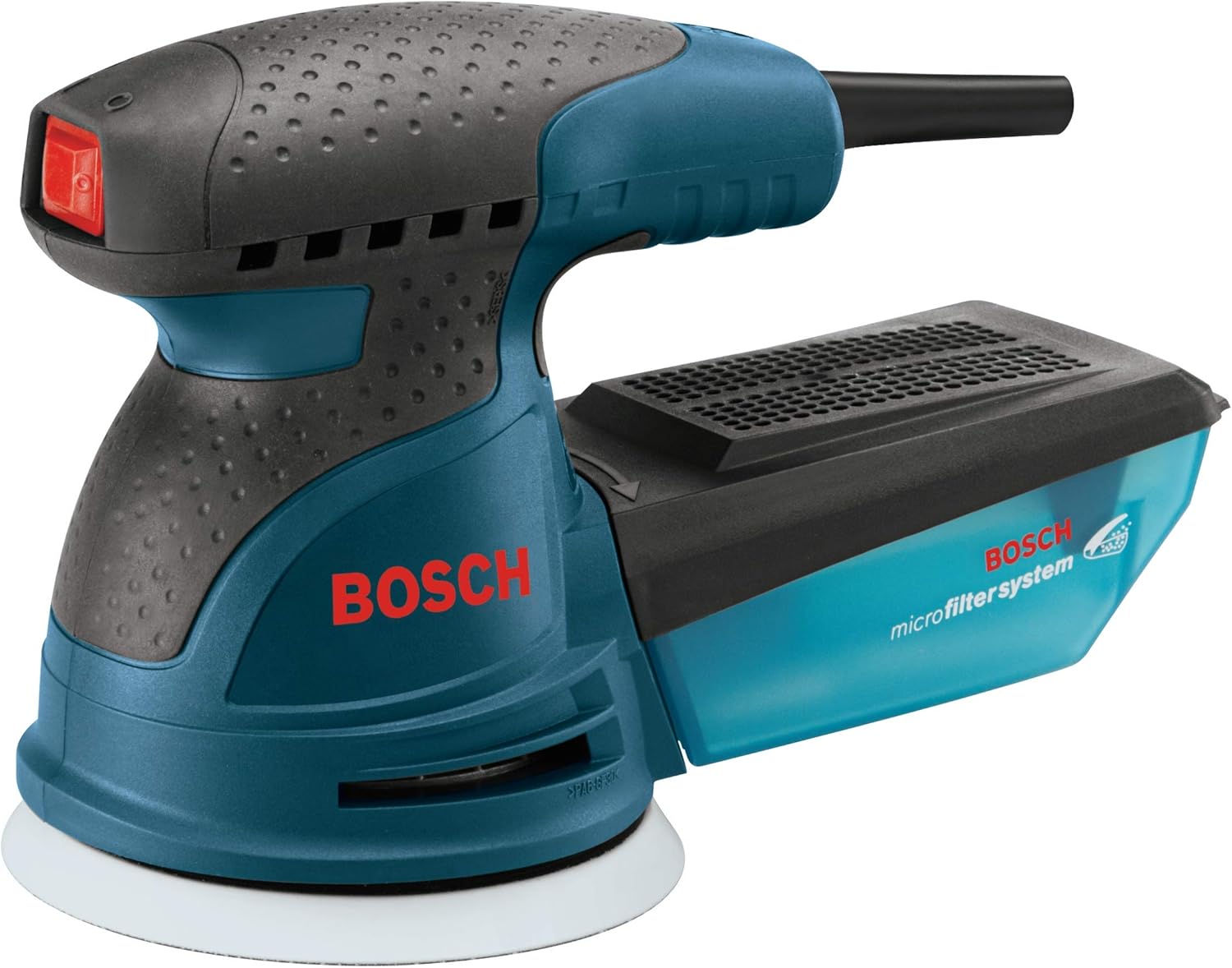Woodworking is a gratifying and creative hobby that allows you to construct utilitarian things while also developing your artistic side. Whether you want to construct furniture, home décor, or outdoor projects, the appropriate tools may make a big difference in both the quality of your work and your entire woodworking experience.
As a beginner, it might be difficult to know where to begin. Fortunately, you don’t need a whole shop of tools to start your woodworking adventure. With just a few basic tools, you can quickly create beautiful, practical objects.
We’ll go over the top woodworking tools for beginners in this post so you can get started with confidence. To get you started on your crafting journey, we’ll also provide links to some easy woodworking projects. Let’s get started !
Best Woodworking Tools For Beginners
1. Measuring Tools: The Foundation of Every Project
Before you begin cutting and assembling wood, accuracy is key. To ensure that your projects fit together perfectly, you’ll need to invest in a few essential measuring tools.
Tape Measure
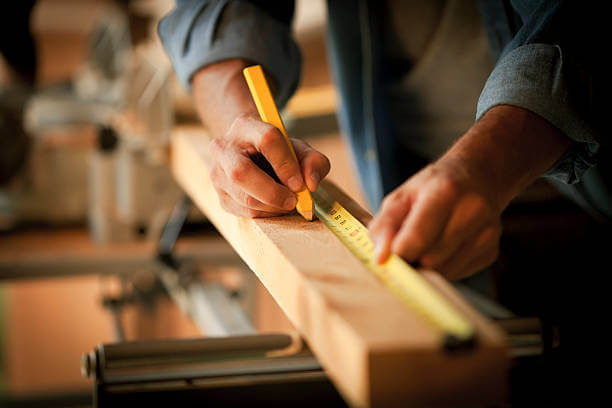
A tape measure is one of the most basic and essential tools for any woodworker. It allows you to measure wood lengths, cuts, and spacing with ease. Choose one that is 25 feet long (or longer) for most indoor woodworking projects.
- Tip: Always double-check your measurements before making any cuts to avoid mistakes.
Speed Square
A speed square is a must-have for marking and cutting straight angles. It’s also handy for checking whether your cuts are square, which is vital for projects like building frames or shelves.
Combination Square
This tool combines a ruler with a square and a 45-degree angle. It’s perfect for measuring, marking, and checking the accuracy of your cuts. It can also be used to measure depths, making it an extremely versatile tool.
Calipers
While you can usually get by without a caliper for basic projects, it’s great for those who want to get into more precision work. Calipers help measure the thickness and diameter of your wood or any dowels you’re working with.
2. Cutting Tools: Making Clean Cuts for Every Project
Once you’ve got your measurements down, it’s time to start cutting. There are several tools that are perfect for beginner woodworkers, offering precision and ease of use.
Hand Saw
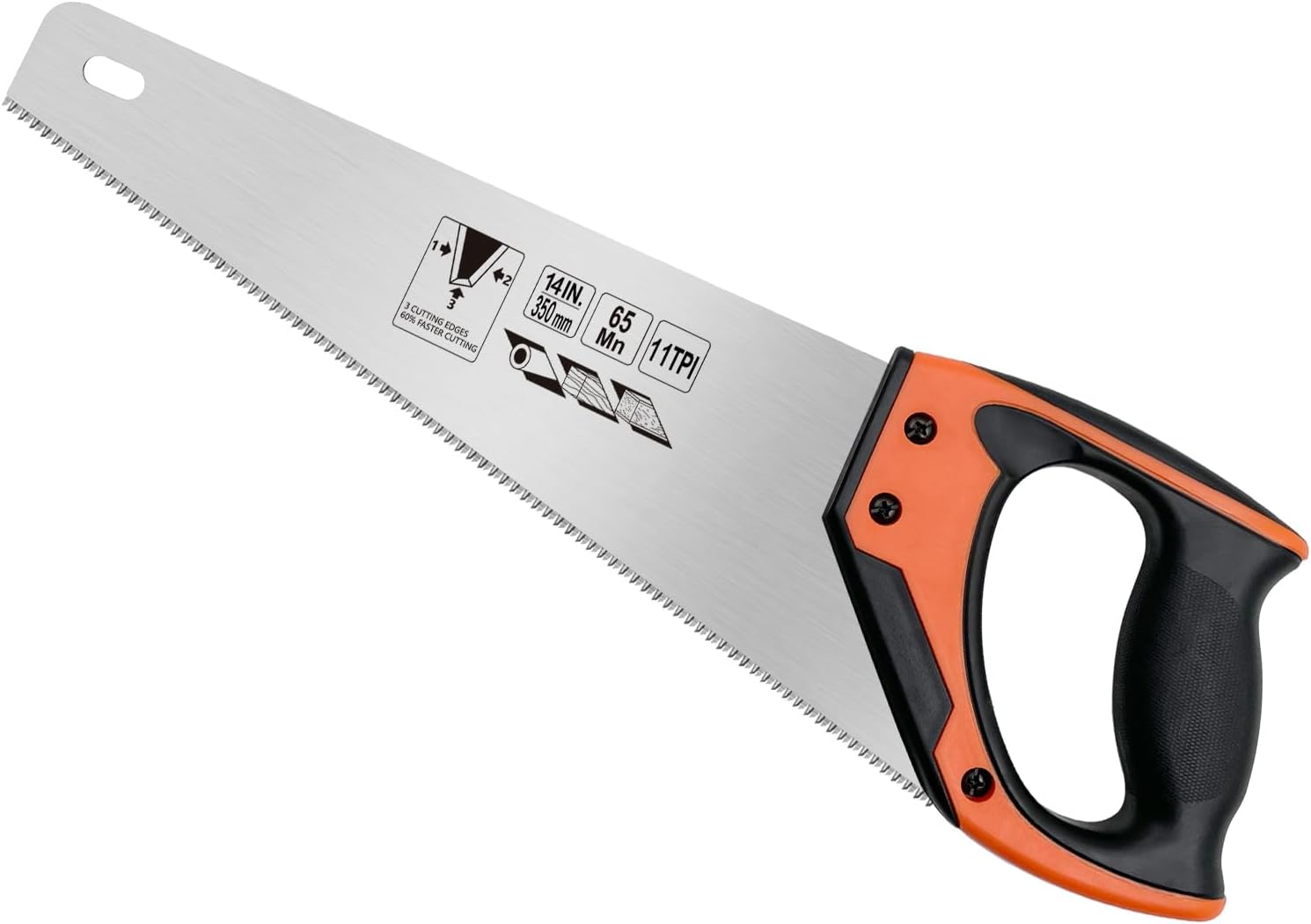
Due to its low cost and lack of complicated setups, a hand saw is a great tool for novices. It’s perfect for cutting tiny pieces of wood straight.
- Pro Tip: A coarser saw works better for fast, harsh cuts, while a fine-toothed hand saw produces finer cuts.
Circular Saw
For those looking to take their cutting to the next level, a circular saw is a fantastic option. It’s much faster than a hand saw and allows for long, straight cuts with precision. A circular saw is especially useful when you need to cut plywood or large boards.
- Guide: If you’re new to the circular saw, make sure to follow safety instructions and practice on scrap wood before using it on your main project.
Jigsaw
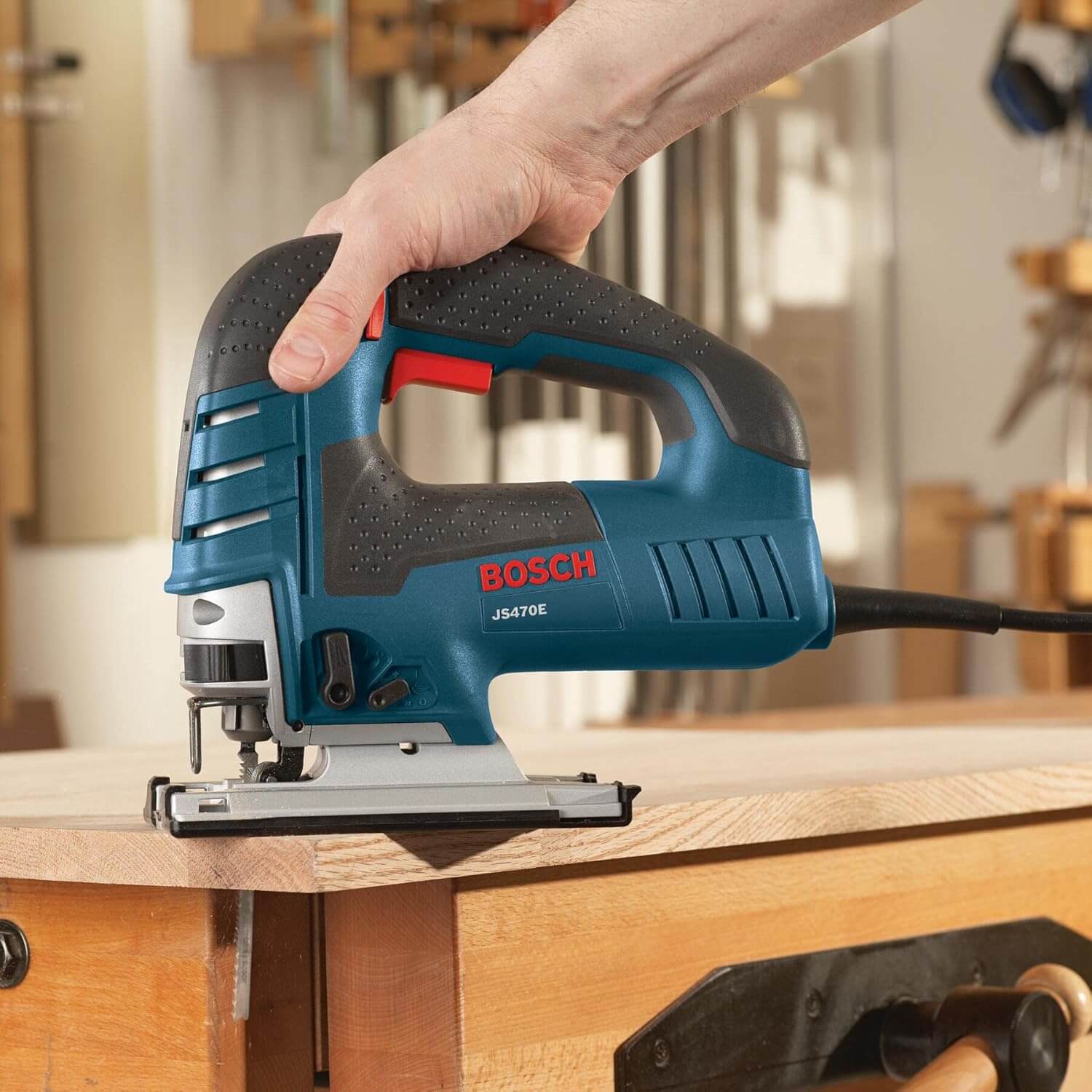
A jigsaw is perfect for making curved or irregular cuts. It’s a versatile tool that can be used for cutting out shapes or making intricate cuts in wood. It’s easier to control than a circular saw and is a good tool for beginners learning to cut more creatively.
Miter Saw
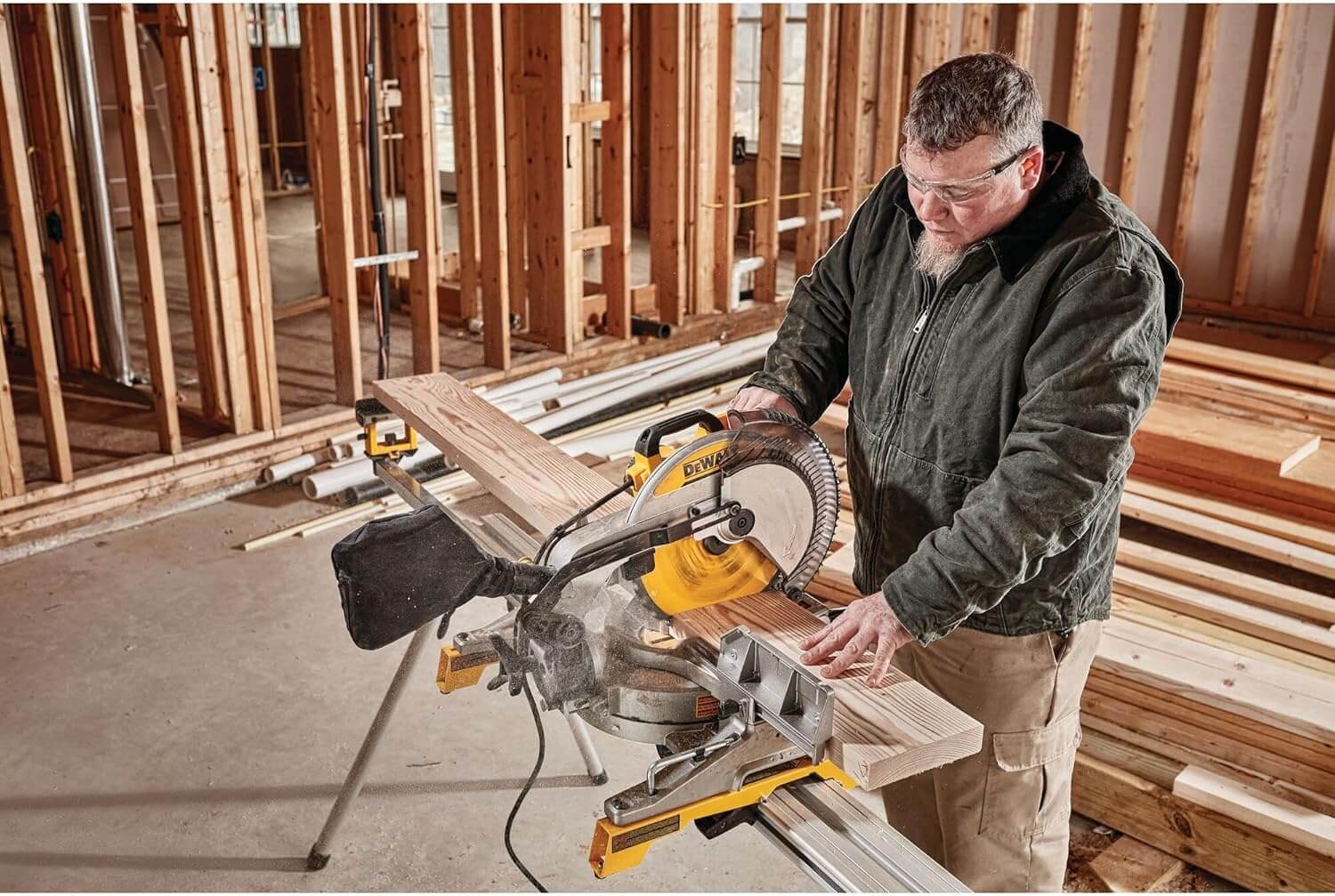
A miter saw is a great tool for making precise crosscuts at various angles. It’s perfect for projects like building frames, furniture, or even trim work. It might take up more space than a jigsaw or circular saw, but it’s worth the investment for more advanced projects down the road.
3. Drilling Tools: Making Holes and Driving Screws with Precision
Drilling is another core skill in woodworking, whether you’re making holes for dowels or driving screws to assemble your pieces. Here are a couple of essential drilling tools.
Cordless Drill
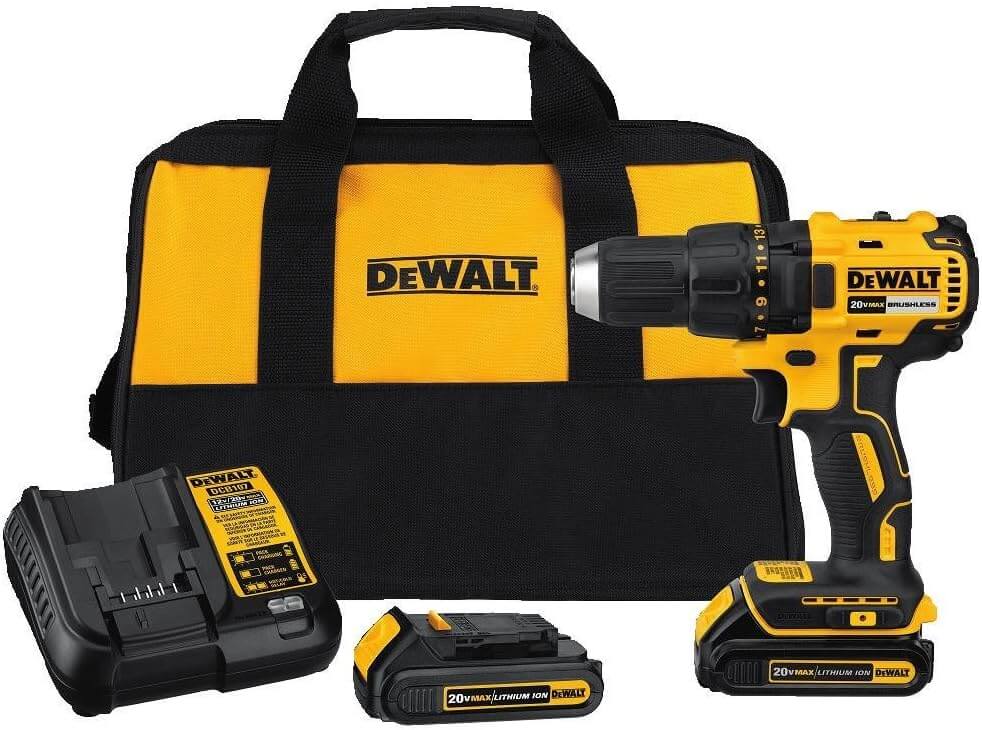
A cordless drill is a must-have tool for beginners. It’s perfect for drilling holes, driving screws, and even sanding with the right attachments. A drill driver with adjustable speed settings is highly recommended for versatility.
- Tip: Start with a 12-volt cordless drill to get the best balance between power and portability.
Drill Bits
You’ll need a variety of drill bits for different types of drilling. Woodworking requires specialized bits, such as twist bits, spade bits, and auger bits, which can be found in a basic drill bit set.
Pocket Hole Jig
A pocket hole jig is an excellent tool for beginners who want to join two pieces of wood together. It creates angled holes, allowing you to use screws to join the wood securely. It’s often used in building furniture and cabinets and is a beginner-friendly way to create sturdy connections.
4. Sanding and Finishing Tools: Giving Your Project a Polished Look
Once your project is assembled, the next step is to smooth out any rough edges and prepare the surface for staining or painting. Sanding and finishing are just as important as cutting and assembling, so these tools are crucial for a beginner woodworker.
Orbital Sander
An orbital sander is perfect for smoothing out rough surfaces, especially if you’re working with plywood or rough-cut lumber. It’s easy to control and will help you finish your projects with a smooth, professional-looking surface.
- Tip: Use fine-grit sandpaper (220-grit) for the final sanding stage to achieve a smooth finish.
Hand Sanding Block
For smaller areas or for a bit more precision, a hand sanding block is helpful. While the orbital sander can take care of most of your sanding, the block allows you to finish fine details, especially on edges.
Wood Finish
Once your project is sanded smooth, you’ll want to finish it with the right wood stain or paint. Wood finishes not only enhance the appearance of your work but also protect the wood from damage. Whether you’re going for a natural wood look with a clear finish or a painted look, the right wood finish will make your project shine.
5. Safety Gear: Protecting Yourself During Your Projects
Before you dive into woodworking, make sure you have the right safety gear. Safety should always come first when using power tools.
Safety Glasses
Protect your eyes from dust and flying debris by wearing safety glasses. Choose a pair that fits comfortably and provides full coverage.
Hearing Protection
Loud power tools can damage your hearing over time, so always wear ear protection when operating loud equipment, such as a circular saw or drill.
Dust Mask
Woodworking can create a lot of dust, so it’s important to wear a dust mask to protect your lungs. A good dust mask will filter out fine particles, ensuring you stay safe while sanding or cutting.
6. Helpful Beginner Woodworking Projects
To help you get started, here are some beginner-friendly woodworking projects that will let you practice your skills:
- DIY Floating Shelves
A perfect project for learning to use a drill and level your cuts. Build sleek floating shelves to display decor or store items.
Project Guide: Floating Shelf Plan - Simple Wooden Coasters
A quick and easy project for practicing your cutting and sanding techniques.
Project Guide: Wooden Coasters Plan - Wooden Picture Frame
Perfect for learning how to make precise cuts and create a clean joinery.
Project Guide: Picture Frame Plan - Birdhouse
A beginner project that teaches you how to work with small pieces of wood and basic hand tools.
Project Guide: DIY Birdhouse Plan
Conclusion
Starting woodworking can be a fun and fulfilling experience with the right tools at your disposal. As a beginner, focusing on a few essential tools will allow you to build a solid foundation for your projects. From measuring tools to cutting, drilling, and finishing, each of these tools is important in shaping your creations.
Remember, the key to success is practice. As you continue building, you’ll gain more confidence and start to develop a better feel for how different tools work together. Whether you’re crafting small decorative items or working on larger furniture projects, these tools will serve you well on your woodworking journey.
Happy crafting, and don’t forget to check out the beginner woodworking projects linked above to get started on your first masterpiece!
Why Not Save This Pin For Later ?
